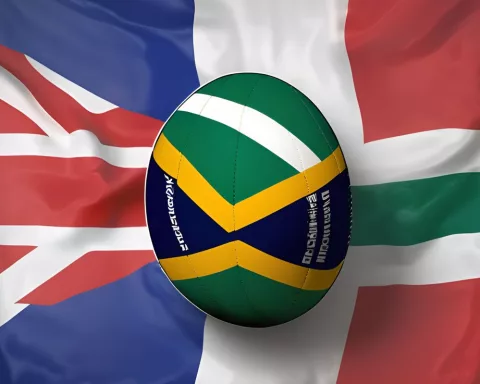South Africa is transitioning towards a new era of identity documentation, phasing out the use of the green barcode ID book in favor of the smart ID card. With over 21 million distributed, the smart ID card offers superior security and functionality, including defense against identity theft and fraud. The government is aiming to distribute an additional 17 million smart ID cards to ensure a smooth transition towards digitalization, reflecting their dedication to refining systems and procedures for the convenience and wellbeing of its citizens.
A New Era of Identity Documentation
The Department of Home Affairs in South Africa is phasing out the use of the green barcode ID book in favor of the smart ID card. With over 21 million distributed, the smart ID card offers superior security and functionality, including defense against identity theft and fraud. The government is focusing on distributing an additional 17 million smart ID cards to ensure a smooth transition towards digitalization.
A New Era of Identity Documentation
In the realm of South African identification, a fresh sunrise is imminent. Over a decade has elapsed since the debut of the ingenious smart ID card. Now, the Department of Home Affairs is indicating a significant milestone – the cessation of the green barcode ID book’s use. Minister Aaron Motsoaledi, in an earnest plea to citizens, is advocating for the transition to the smart ID card, insinuating an impending formal announcement.
The smart ID card, a contemporary parallel to the traditional green barcode ID book, was launched in 2013. Its unveiling marked an essential turning point, symbolizing society’s steady journey towards digitalization. Currently, the number of smart ID cards distributed to South Africans exceeds 21 million, demonstrating a widespread embrace of the cutting-edge innovation.
In a recent conversation, Minister Motsoaledi disclosed the government’s plan to phase out the green barcode ID. This decision is driven by the lengthy period of managing two parallel identity documentation systems. Initially, the smart ID card was anticipated to supersede the green ID within a two-year timeframe. Despite a substantial extension of the original timeline, the government is now ready to fast-track this evolution.
The Evolution of Identity Documents
Although the green barcode ID books retain their validity for now, Thabo Mokgola, the Spokesperson for the Department of Home Affairs, has been unable to confirm a specific expiry date. Statistics reveal that slightly more than half of the nation’s populace are in possession of smart ID cards. Yet, the department faces significant pressure to distribute an additional 17 million smart ID cards, not including the count of first-time identity document applicants.
The smart ID card is more than just a symbol of technological progression. It also boasts substantial functional superiority over the green barcode ID. It serves as a formidable defense against identity theft and fraud associated with driver’s licenses, social grants, banking, and insurance. The smart ID card represents more than a mere piece of identification – it encapsulates a holistic resolution to numerous societal challenges, namely identity theft and fraud.
The Department of Home Affairs has demonstrated both initiative and ingenuity in streamlining the application procedure for the smart ID card. They introduced an online reservation platform that allows applicants to bypass the hassle of long waiting lines at local offices. The system enables applicants to choose a suitable date and time to finalize their application at their nearest Home Affairs branch. During this process, citizens relinquish their green barcode IDs, effectively ushering in a new era dominated by the smart ID card.
Embracing the Future with Smart ID Cards
The shift from the green barcode ID to the smart ID card embodies a crucial stride in South Africa’s progression towards fully integrating into the digital age. This move reflects the government’s unwavering dedication to refining systems and procedures, improving the convenience and wellbeing of its citizens. The smart ID card transcends being a mere document; it signifies a pledge towards a safer, more efficient future.
However, the journey is far from over. The incumbent task for the government is to ensure that the remaining 45% of South Africans acquire their smart ID cards. As the era of the green barcode ID book draws to a close, the smart ID card stands ready to succeed it, heralding a fresh chapter of enhanced security and digital competence.
1. What is the smart ID card in South Africa?
The smart ID card is a new form of identification documentation in South Africa that is phasing out the use of the green barcode ID book. It offers superior security and functionality, including defense against identity theft and fraud.
2. How many smart ID cards have been distributed in South Africa?
Over 21 million smart ID cards have been distributed in South Africa.
3. Why is the government phasing out the green barcode ID book in favor of the smart ID card?
The government is phasing out the green barcode ID book to ensure a smooth transition towards digitalization and to improve the convenience and wellbeing of its citizens. The smart ID card offers better security and functionality, including defense against identity theft and fraud.
4. What is the government’s plan for distributing more smart ID cards?
The government aims to distribute an additional 17 million smart ID cards to ensure a smooth transition towards digitalization. The Department of Home Affairs has streamlined the application process with an online reservation platform that allows applicants to choose a suitable date and time to finalize their application at their nearest Home Affairs branch.
5. When will the green barcode ID book expire?
The Department of Home Affairs has not confirmed a specific expiry date for the green barcode ID book.
6. What does the shift from the green barcode ID book to the smart ID card symbolize?
The shift from the green barcode ID book to the smart ID card symbolizes a crucial stride in South Africa’s progression towards fully integrating into the digital age. It reflects the government’s dedication to refining systems and procedures, improving the convenience and wellbeing of its citizens, and enhancing security and digital competence.











